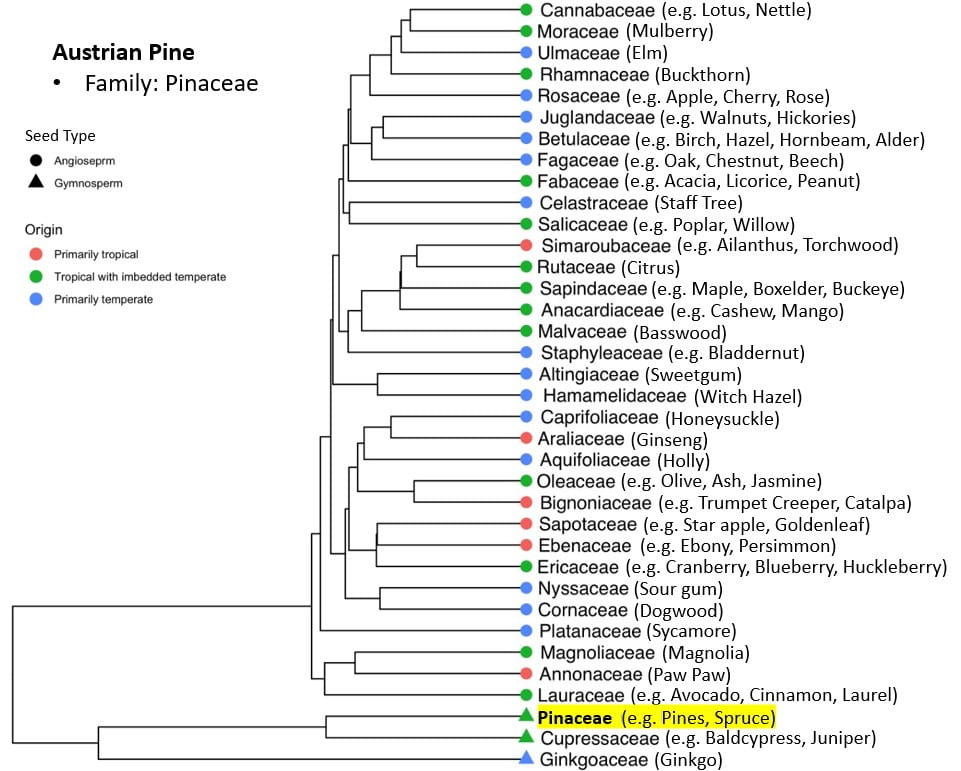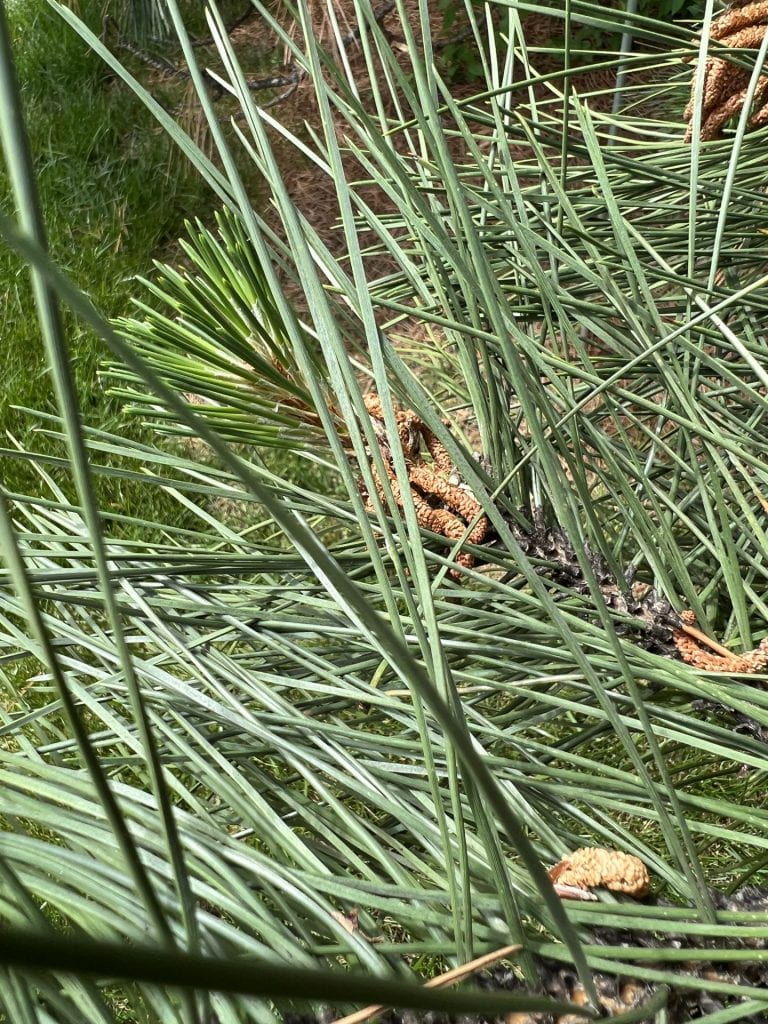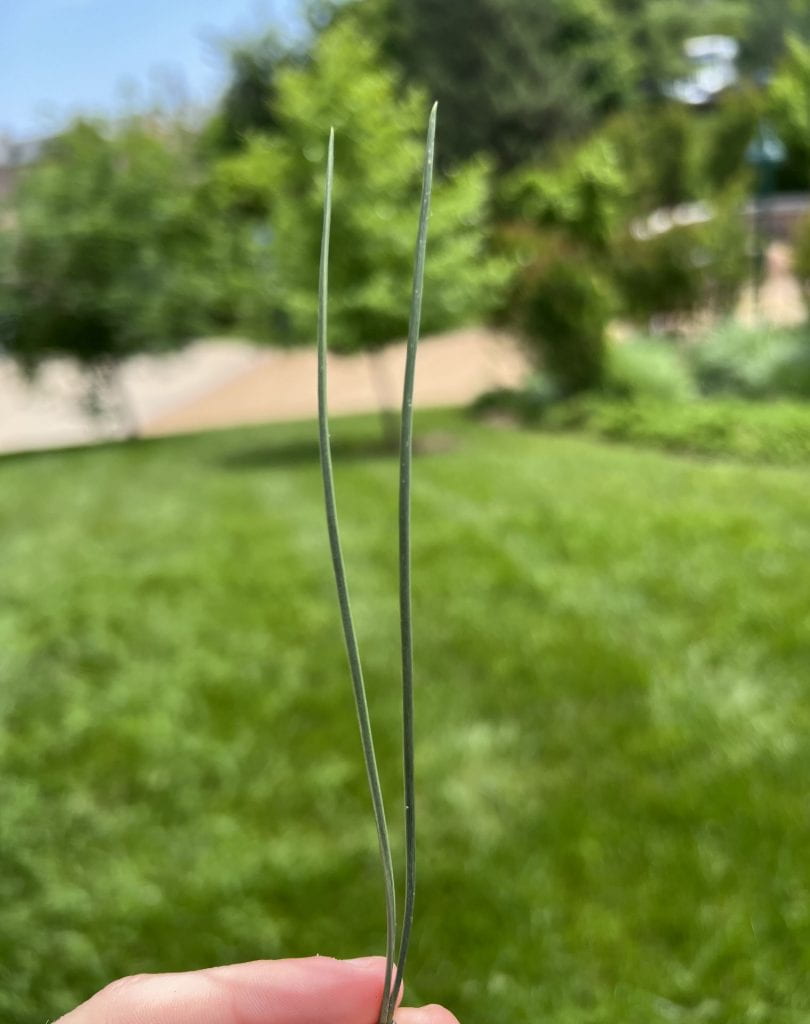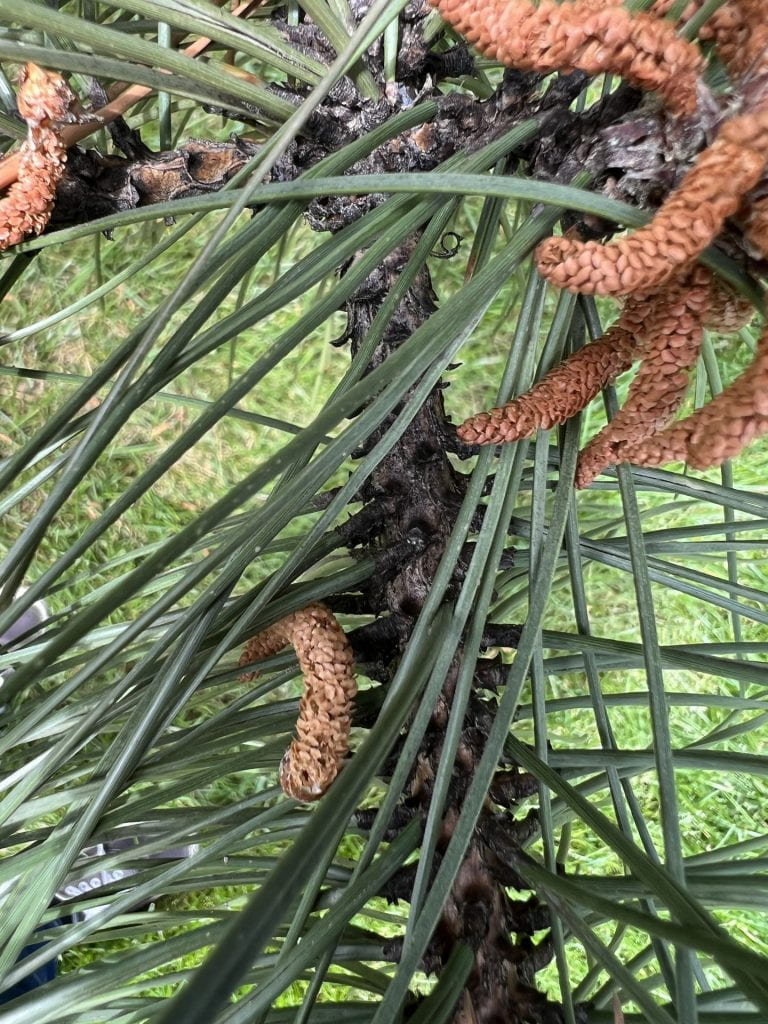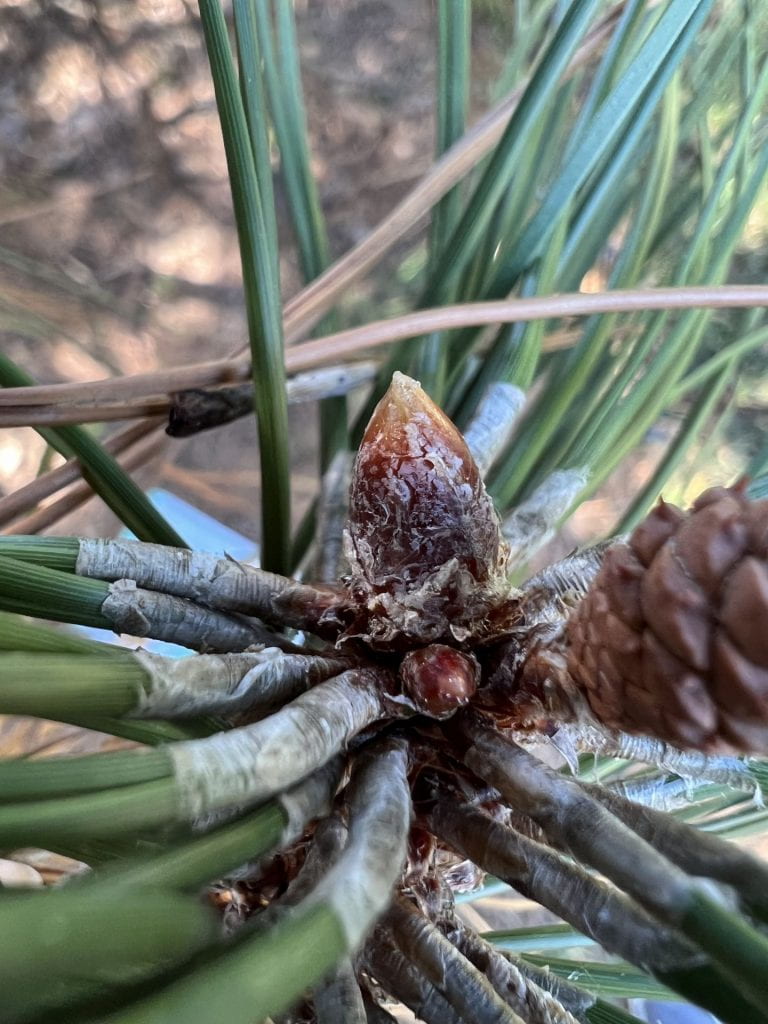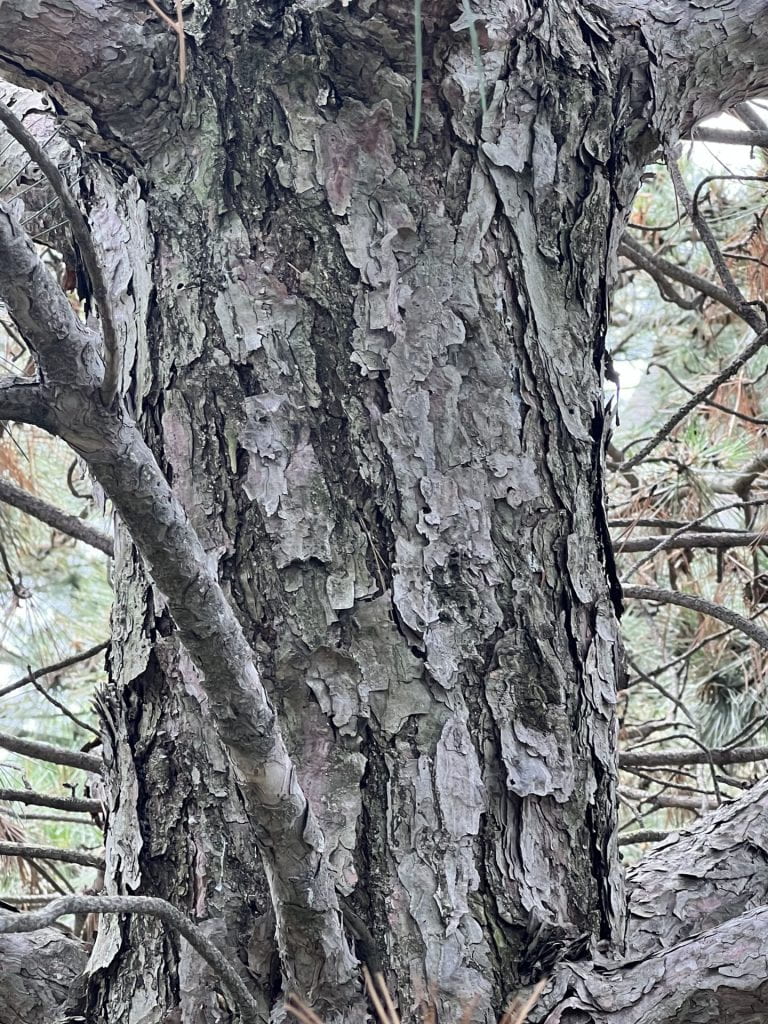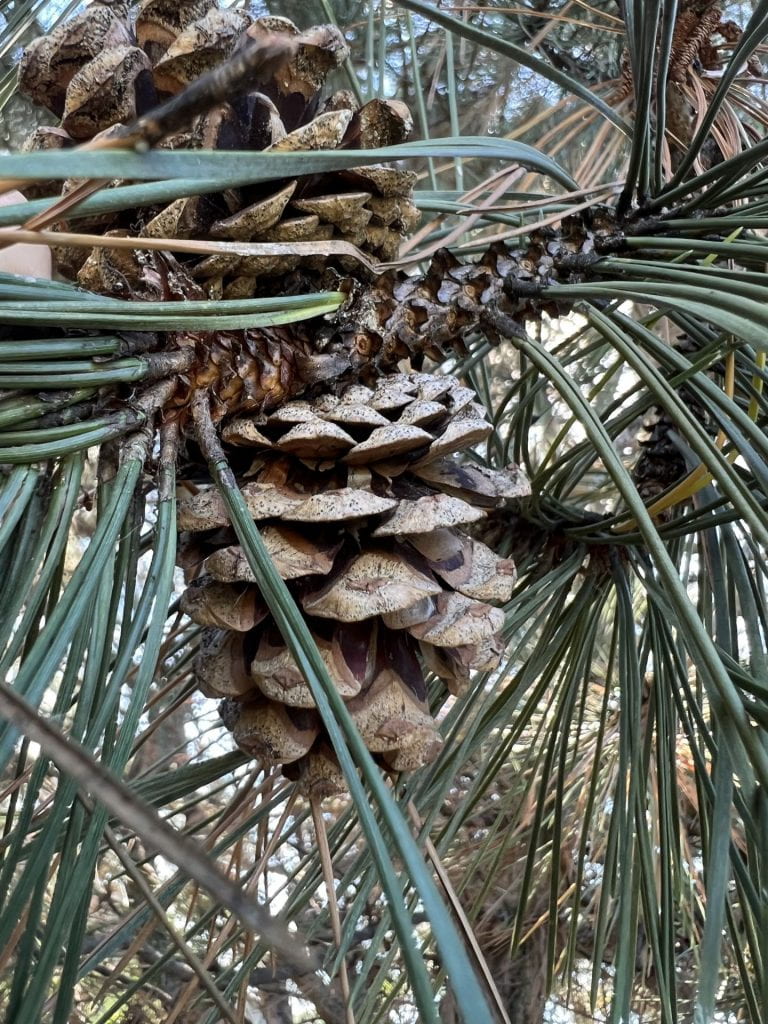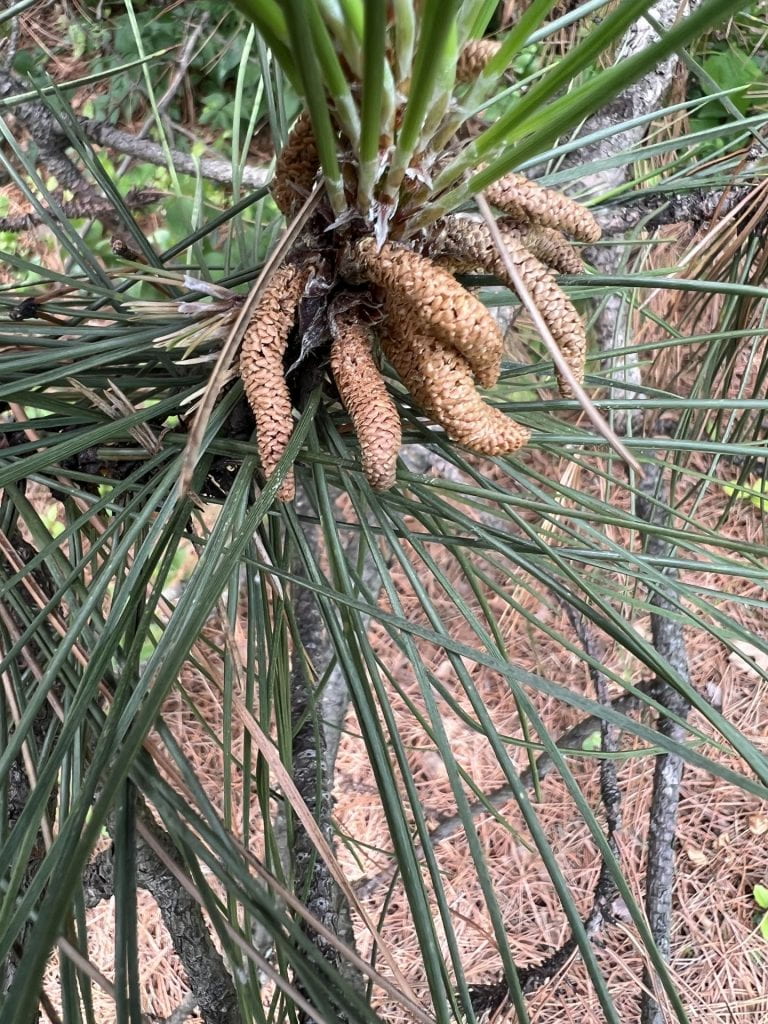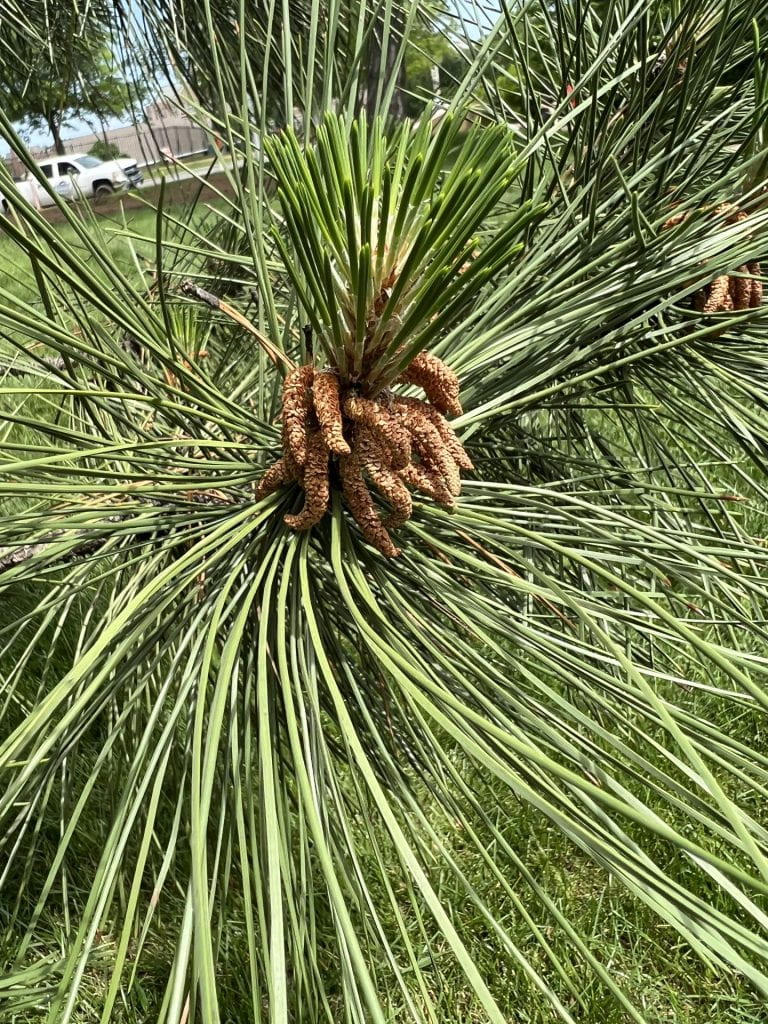Austrian Pine
Arbor Walk #83, Treekeeper ID #3668
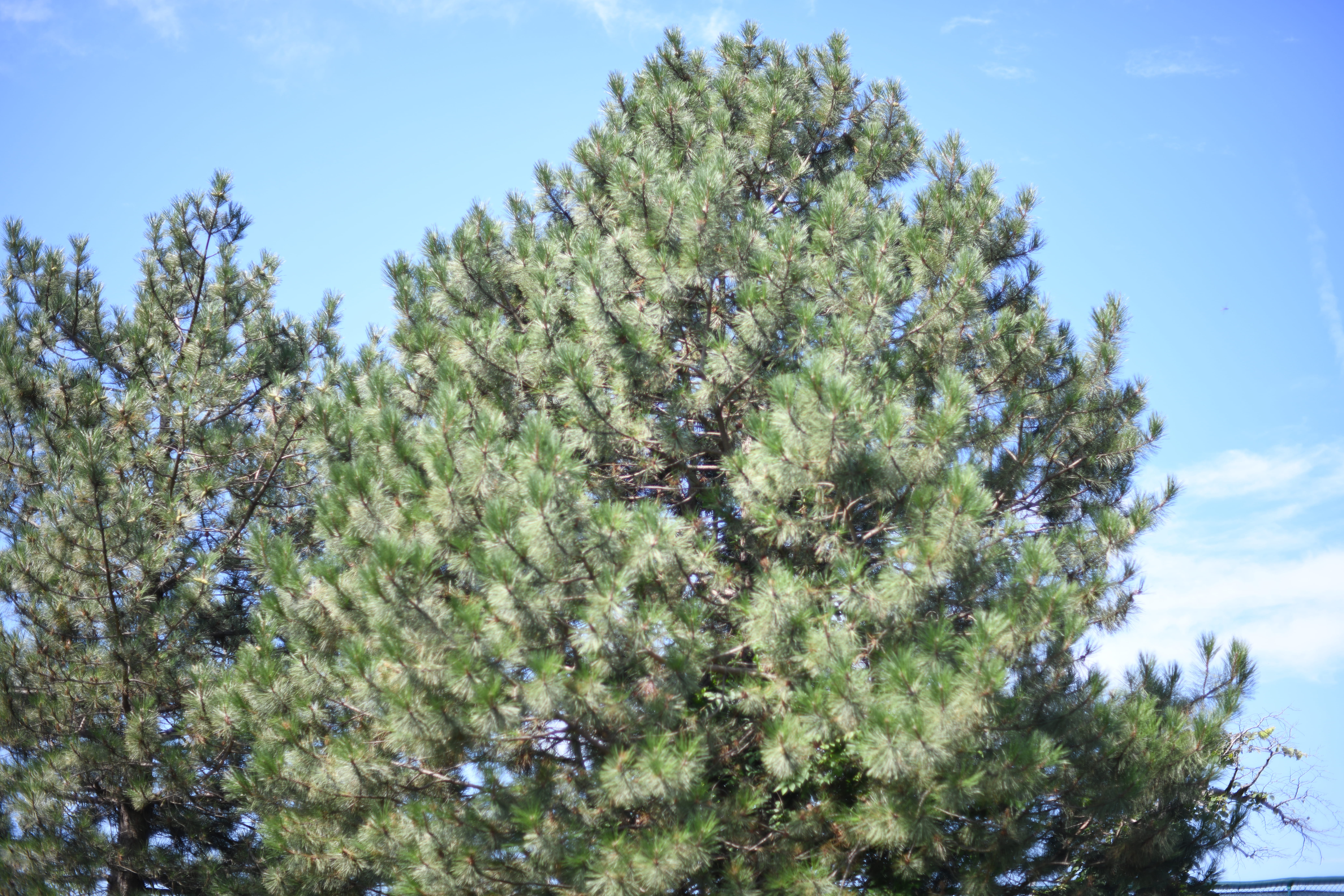
The Austrian Pine is a conifer that is native to Europe. It is known for its oval cones and dense crown.
The Austrian Pine was introduced from Austria into the US in 1759. It has a conical or pyramidal form when young that spreads out into an umbrella form as the tree matures. The Austrian Pine is fairly durable in windy conditions and over 200 million Austrian Pines were planted during the Dust Bowl in the 1930s. However, it is very susceptible to many diseases and pests, particularly in the St. Louis area.
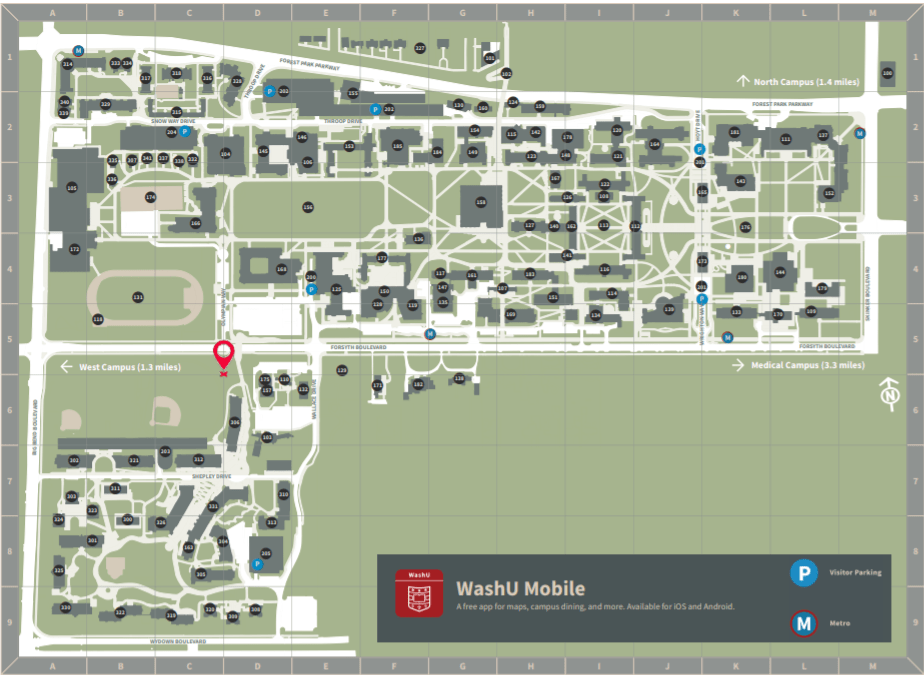
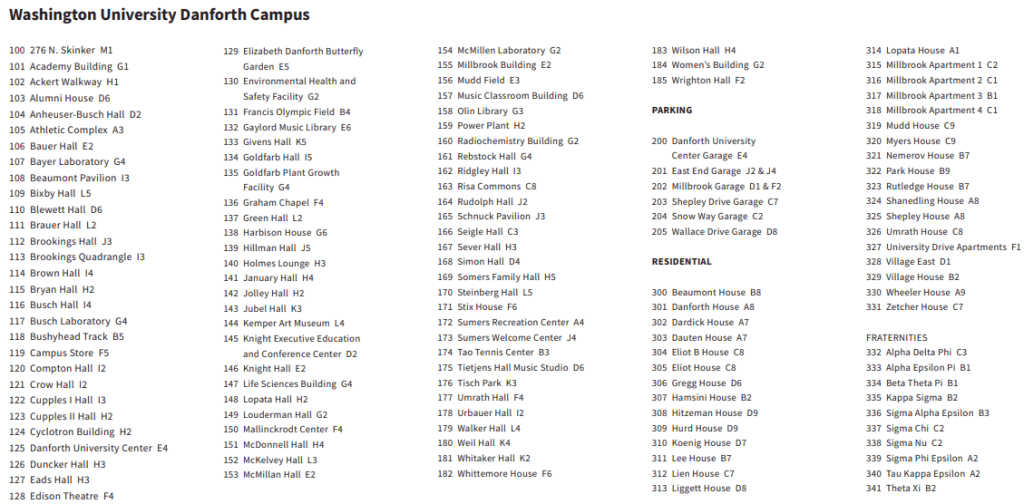
GPS Coordinates
N/A
Percent Concrete
N/A
Distance to Buildings
| Year | Close Building #1 | Close Building #2 | Close Building #3 |
|---|---|---|---|
| 2020 | Gregg Residental Hall, 37.17 m | Tietjens Hall, 52.36 m | Music Classroom Building, 60.75 m |
Distance to Other Species
| Year | Close Species #1 | Close Species # 2 | Close Species # 3 |
|---|---|---|---|
| 2020 | Scotch Elm, 6.95 m | Austrian Pine, 7.30 m | Post Oak, 9.45 m |
Standard Measurements
| Year | Height (m) | DBH (cm) | Crown Diameter N-S (m) | Crown Diameter E-W (m) | Average Crown Diameter (m) |
|---|---|---|---|---|---|
| 2020 | 7.9486 | 38.6 | 6.74 | 7.97 | 7.36 |
| 2023 | 9.7 | 37 | 7.72 | 9.12 | 8.42 |
Nests and Pests
| Year | Description |
|---|---|
| 2020 | Apparent needle blight on seemingly random patches of needles An area of blighted needles shows fungal growth on the area, as well as some slight swelling Lots of green algae coating the tree |
Leaf Identification
The leaves of the Austrian Pine are stiff needles with a spiral leaf arrangement, 4″ to 7″ in length. They are plate-like and found in bundles (fascicles) of two. They are a dark green and stay attached all year.
Twig and Bud Identification
Austrian Pine twigs are very stout and dark brown. The terminal buds are large and ovid with white markings.
Bark Identification
The Austrian Pine are ridged and furrowed. It creates scales in a mosiac of gray, brown, and white.
Cone Identification
The Austrian Pine has a oval, stalkless seed cone that matures to a brown color. It is around 3″ long. The little point at the end of each cone scale (umbo) is a very short prickle. The staminate cones are cylindrical, orangish-yellow, and gather in clusters at the end of the twig. The immature ovulate cones are small and red-brown.
Pine ID Tips
- The Austrian Pine has two needles per fascicle, setting them apart from the majority of oaks.
- Of two-needled pines, the Austrian pine has one of the longest needles, 7″ at longest.
- The only other two-needled pine of similar length is the Red Pine; however, the Red Pine has thinner, brighter needles than the Austrian Pine. As well, the Austrian Pine’s needles will not snap when bent, whereas the Red Pine’s needles will. Finally, the cone of the Austrian Pine is nearly always larger (up to 4″) than that of the Red Pine (up to 2 1/2″).
